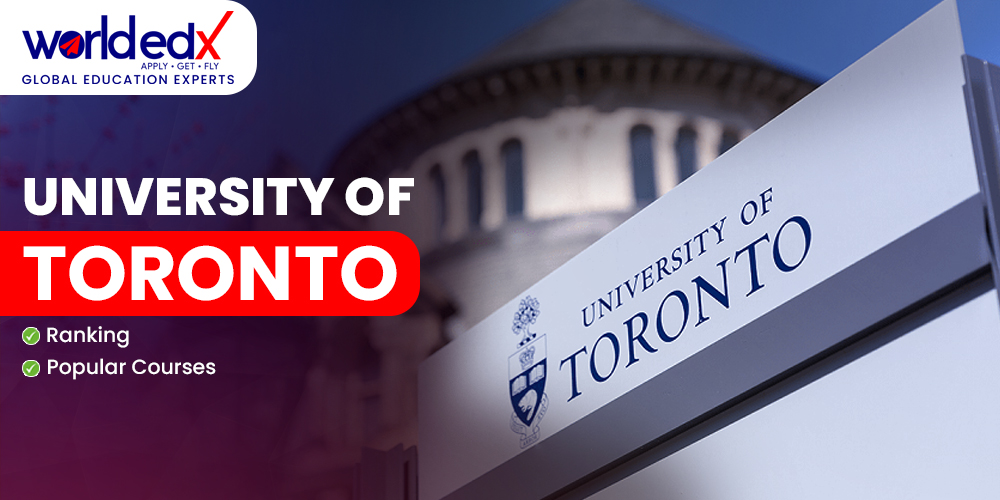Choosing between Canada and the USA for studying abroad is a pivotal decision that requires careful consideration. Both countries offer excellent educational opportunities, diverse cultures, and amazing experiences. In this comparison, we’ll go through the key factors that can affect your choices, such as the quality of education, cost considerations, work opportunities, immigration policies, safety, and overall quality of life.
Canada Vs USA: Comparison

| Aspect | Canada | USA |
| Quality of Education | Renowned universities like the University of Toronto, McGill University and UBC. | Prestigious institutions like Harvard, MIT, and Stanford. |
| Cost of Education | Lower tuition fees compared to the USA. | Tuition fees can be higher, varying widely by institution. |
| Scholarships | Offers scholarships and financial aid but with less competition. | Vast range of scholarships, but often more competitive. |
| Work Opportunities | Off-campus work is allowed during studies. Post-Graduation Work Permit available. | OPT program allows for post-graduation work opportunities. |
| Immigration | Welcoming immigration policies and pathways to permanent residency available. | Complex immigration system, H-1B visa for work after graduation. |
| Safety & Quality of Life | High safety rankings and good quality of life. | Different safety levels depending on location and mixed lifestyle options. |
To help you decide, let’s explore various factors that might influence your choice.
Quality of Education
Both Canada and the USA are home to some of the world’s top universities. The USA boasts prestigious institutions like Harvard, Massachusetts Institute of Technology and Stanford, which consistently rank high globally. American universities are known for their extensive research facilities, diverse programs, and influential alumni networks.
Canada, on the other hand, is renowned for its high-quality education system that emphasizes inclusivity and practical learning. Universities such as the University of Toronto, McGill University, and the University of British Columbia are highly respected. Canadian institutions are often praised for their research opportunities and supportive environments for international students.
Cost of Education and Living
Education in the USA can be expensive. Tuition fees vary widely depending on the institution and program, with costs ranging from $20,000 to $60,000 per year for undergraduate studies. Graduate programs can be even more costly. Additionally, living expenses in major cities like New York, San Francisco, and Boston can add significantly to the overall cost.
In contrast, tuition fees in Canada are generally lower. Undergraduate programs typically cost between $15,000 and $30,000 per year, while graduate programs are slightly higher. Living expenses in Canadian cities such as Toronto, Vancouver, and Montreal are also relatively more affordable compared to major American cities. This makes Canada an attractive option for students seeking high-quality education at a more manageable cost.

Scholarships and Financial Aid
International students have the option to select from different kinds of financial aid and scholarships offered by the USA. Many universities provide merit-based and need-based scholarships, grants and fellowships. Prestigious institutions often have substantial endowments that fund various financial aid programs. However, the competition can be tough for these scholarships.
Canada also offers numerous scholarships and financial aid opportunities, although they may not be as extensive as in the USA. Canadian universities and the government provide scholarships, bursaries, and grants to international students based on academic performance, community involvement and financial needs. The application process for Canadian scholarships is generally less competitive, making it easier for students to secure funding.
Work Opportunities
International students in the USA on an F-1 visa are allowed to work on-campus for up to 20 hours per week during the academic term and full-time during holidays. Additionally, students can participate in Optional Practical Training (OPT) after graduation, which allows them to work in their field of study for up to twelve years if they are STEM graduates.
Canada provides similar work opportunities for international students. Students can work off-campus for up to 20 hours per week during the academic term and full-time during scheduled breaks. The Post-Graduation Work Permit (PGWP) program allows graduates to work in Canada for up to three years, depending on the length of their study program. This work experience can be valuable for those seeking permanent residency in Canada.

Immigration and Post-Study Opportunities
Canada is known for its welcoming immigration policies and pathways to permanent residency. International graduates can apply for permanent residency through programs like the Canadian Experience Class (CEC) and the Provincial Nominee Program (PNP). These programs are designed to retain skilled international graduates and integrate them into the Canadian workforce and society.
The USA, however, has more strict immigration policies, and obtaining a work visa or permanent residency can be challenging. The H-1B visa, which allows graduates to work in the USA, is subject to an annual cap and a lottery system, making it less predictable. Despite these challenges, successful graduates from top universities often find lucrative job opportunities in the USA, which can lead to employer-sponsored visas and eventual permanent residency.
Safety and Quality of Life
Safety and quality of life in the USA can vary greatly depending on the city or region. While many cities offer high standards of living and are safe for students, some areas may have higher crime rates. Doing research and selecting your location is crucial. American cities generally provide a wide range of amenities, entertainment options, and lifestyle choices.
Canada often scores well on global standards of safety and quality of life. Canadian cities are known for their cleanliness, safety and well-organized public services. The healthcare system in Canada is also accessible and affordable, which can be a significant advantage for international students. Overall, Canada provides a high standard of living and a safe environment.
Changes in Canada Student Visa 2026
As of 2026, Canada has introduced several new rules and policies for international students coming to study in the country.
- Study Permit Cap: The Canadian government has implemented a temporary two-year cap on the number of approved study permits in 2024, aiming for around 360,000 total. This might make it more competitive to secure a study permit, especially for undergraduate programs.
- Increased Cost of Living Requirement: To prove sufficient financial resources, international students now need to show they can cover higher living expenses. The minimum proof of financial support has jumped from $10,000 to $20,635 (excluding tuition fees) for most provinces. Quebec has a slightly different requirement.
- Post-Graduation Work Permits (PGWPs): If you graduate from a public college or university, you’ll still be eligible to apply for a PGWP. However, students who complete programs offered through curriculum licensing arrangements at private institutions will no longer be eligible for PGWPs after graduation.
- Public-Private Partnership (PPP) Programs: Students graduating from PPP institutions (private colleges partnered with public colleges) will no longer be eligible for post-graduation work permits (PGWPs).
Talk to an Expert for FREE Counselling
Conclusion
Choosing between Canada and the USA for studying abroad ultimately depends on your priorities and preferences. If you are looking for a more affordable education, a welcoming environment, and easier pathways to permanent residency, Canada might be the better choice. On the other hand, if you are aiming for prestigious universities, a diverse range of cultural experiences, and are prepared for higher costs and a more complex immigration process, the USA could be the ideal destination.
Both countries offer excellent education and opportunities, so whichever you choose, you’ll be on the right path to achieving your academic and career goals. Take the time to research specific universities, programs, and cities to find the best fit for you. Remember, the experience of studying abroad is not just about academics, it’s also about personal growth, making lifelong connections and welcoming new cultures and perspectives.







